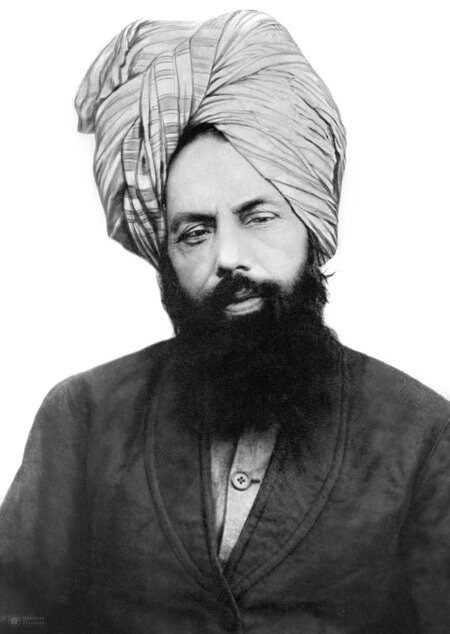Delivered on 18 January 1898
Divine Decree

There are two kinds of decree: one may be referred to as suspended (mu‘allaq) and the other is known as absolute (mubram). The operation of a suspended decree may be averted by the grace of Allah the Almighty through prayer and alms-giving. An absolute decree, however, cannot be averted through prayer and alms-giving. Nonetheless, these good deeds are not left useless, for this is contrary to the greatness of Allah Almighty. He returns the benefit of these prayers and alms by some other means.
In some cases, God Almighty causes a delay in the operation of a decree or postpones it for some time. The source from which we learn about suspended and absolute decrees is the Holy Quran. Although these exact words do not appear; however, the Holy Quran states:
ادْعُونِی أَسْتَجِبْ لَکُمْ
The translation of this verse is, “Supplicate and I shall accept.”
Now this demonstrates that prayer can be accepted and through prayer, punishment can be averted. What to talk of thousands, nay, every affair of man can be settled through prayer. It ought to be borne in mind that Allah the Exalted possesses omnipotent control over everything. He does as He wills. Whether people are aware of His hidden powers or not, the vast experiences of a great many and the manifest outcome of the prayers of countless fervent supplicants clearly demonstrate that God commands a hidden and unseen power. He effaces whatever He wills, and establishes whatever He wills.
It is not necessary for us to reach the depths of this phenomenon; nor need we endeavour to understand fully the essence and nature of this system. When it is in the knowledge of Allah Almighty that something will occur, there is no need for us to involve ourselves in a dispute or debate over how.
God Almighty has subjected a man’s destiny and fate to various conditions, and it may be averted through repentance, humility and meekness. When a person is touched by some sort of pain or affliction, they naturally and instinctively incline towards good deeds. They feel an apprehension and anguish within themselves, which awakens them and pulls them towards virtuous deeds, distancing them from sin.
Just as we learn of the efficacy of various medicines through experience, in the same manner an individual suffering from affliction receives glad tidings and satisfaction through true dreams and revelation when they fall down at the threshold of God Almighty with extreme humility and lowliness, beseeching and supplicating God, saying:
“O my Lord! O my Lord!”
Hazrat Ali, may Allah honour him, says:
“When a prayer reaches its pinnacle through patience and sincerity, it is accepted”.
The fact that prayer, alms-giving and charity avert divine punishment is so conclusively established a fact that 124,000 prophets are in consensus on the matter and tens of millions of pious, righteous individuals and saints testify to this through their own personal experience.
(Hazrat Mirza Ghulam Ahmadas, Malfuzat, Vol. 1, p. 155-156)

